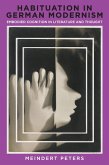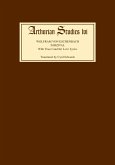Essays on and interviews with minoritized writers of contemporary Germany, mostly women or non-binary, whose literary interventions write radical diversity into the dominant culture and challenge fixed frames of identity.
In Germany today, an increasing number of minoritized authors - many of them women, nonbinary, or other marginalized genders - are staging literary interventions that foreground the long-standing complexity and radical diversity of German identities. They are reconceiving, redefining, and rewriting understandings of "Germanness" by centering previously marginalized perspectives and challenging fixed frames of nationality, ethnicity, language, gender, sexuality, and even time and space. In so doing, they open new ways of conceiving of self and other, individual and collective, and thus envision alliances and communities that do justice to the range of lived experiences in Germany.
Drawing on frameworks of postmigration, postcolonialism, intersectionality, critical race and whiteness studies, and feminist and queer theory, this volume investigates various literary strategies employed by writers representing diverse subject positions to engage creatively with questions of hegemonic culture and belonging, exposing the exclusionary if not violent practices that these entail. The volume showcases cutting-edge scholarship by established and early career researchers, and is innovative in format: essays treating works by authors such as Fatma Aydemir, Shida Bazyar, Asal Dardan, Sharon Dodua Otoo, Antje Rávik Strubel, Noah Sow, Jackie Thomae, and Olivia Wenzel, along with original interviews with Stefanie-Lahya Aukongo, Özlem Özgül Dündar, Sasha Marianna Salzmann, and Mithu Sanyal illustrate the plurality, agency, and increasing resonance of these literary figures and their works.
The chapter by Leila Essa, "Seen as Friendly, Seen as Frightening? A Conversation on Visibilities, Kinship, and the Right Words with Mithu Sanyal," is made freely available under the Creative Commons license CC BY-NC.
In Germany today, an increasing number of minoritized authors - many of them women, nonbinary, or other marginalized genders - are staging literary interventions that foreground the long-standing complexity and radical diversity of German identities. They are reconceiving, redefining, and rewriting understandings of "Germanness" by centering previously marginalized perspectives and challenging fixed frames of nationality, ethnicity, language, gender, sexuality, and even time and space. In so doing, they open new ways of conceiving of self and other, individual and collective, and thus envision alliances and communities that do justice to the range of lived experiences in Germany.
Drawing on frameworks of postmigration, postcolonialism, intersectionality, critical race and whiteness studies, and feminist and queer theory, this volume investigates various literary strategies employed by writers representing diverse subject positions to engage creatively with questions of hegemonic culture and belonging, exposing the exclusionary if not violent practices that these entail. The volume showcases cutting-edge scholarship by established and early career researchers, and is innovative in format: essays treating works by authors such as Fatma Aydemir, Shida Bazyar, Asal Dardan, Sharon Dodua Otoo, Antje Rávik Strubel, Noah Sow, Jackie Thomae, and Olivia Wenzel, along with original interviews with Stefanie-Lahya Aukongo, Özlem Özgül Dündar, Sasha Marianna Salzmann, and Mithu Sanyal illustrate the plurality, agency, and increasing resonance of these literary figures and their works.
The chapter by Leila Essa, "Seen as Friendly, Seen as Frightening? A Conversation on Visibilities, Kinship, and the Right Words with Mithu Sanyal," is made freely available under the Creative Commons license CC BY-NC.
Dieser Download kann aus rechtlichen Gründen nur mit Rechnungsadresse in A, D ausgeliefert werden.









